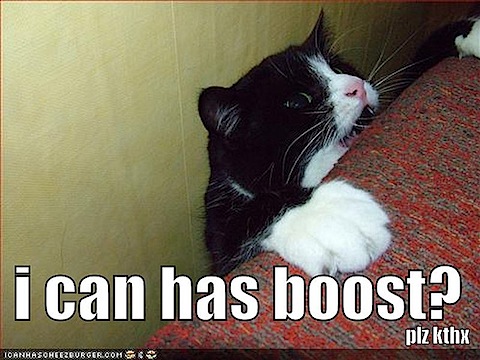It’s much easier to understand our own motivations than to get into someone else’s head (and heart) to understand theirs.
Case in point:
I know that I’m writing this blog about The Boost Economy because I’m trying to ask some different questions, put ideas together in new ways, find some useful insights, and figure out how to use what I’m learning to help us create Boost economies everywhere we work.
I know why I’m writing about the Boost Economy, but why would you want to read it?
After all,
You already know that our work, our organizations, and our economy could be better.
You already believe that our ways of working together have to change, so that instead of extracting value from each other and our world we instead create value that sustains us and helps us flourish.
You are already challenging yourself as a person, to become a better leader, manager, artist, marketer, maker, customer, supplier, and colleague, because you understand that change begins with you.
You already understand that what you do, how you do it, and who you do it with will make all the difference.
And most of all,
You already believe that a small group of dedicated people and organizations can work together to change the world – and you’re impatient, because you know that we could change the world faster, more effectively and more joyfully if we were working together.
It’s the “if we were working together”-part that gets us stuck though. All those “ifs”.
- If we had other people to rely on when we got weary or distracted.
- If we had words we could use to describe the ideas, the tactics and the values that are exciting us.
- If we had more ideas about what we could do to bring these ideas to life.
- If we had some examples of other people, other companies, and other networks who were making changes that were creating pockets of meaningful, powerful boost community.
- If we had colleagues and allies to share these examples with.
- If we had a place to discuss what we were trying, what we’d learned, and what questions we’re asking.
- If we had a community that could say to us “Yes, that’s a great idea. A terrific insight. A clever tactic. A meaningful accomplishment.”
If we had our own small Boost economy, right here on the interwebz, where we could create this for each other.
I’m hoping that a little Boost economy of our own is what you’re looking for.
That finding — and being part of creating — this kind of place is what motivated you to read this far down the page.
Yes? Then join in.
If I’ve understood you, and you want to join in, here are a few ways to get started:
You can sign up for an email from The Boost Economy blog, by entering your email address below, so that you know as soon as new ideas are posted.
You can subscribe to The Boost Economy using the RSS feed, to connect through your blog reader, your Flipboard, or whatever news aggregating tool you use.
You can follow me & us on Twitter, @BoostEconomy. (Check out the list of other Boosters on the Twitter page, too.)
Join in any of these ways, and you’ll make sure that we can connect with each other when we have questions, suggestions, inspirations and progress to share.
For the next many months, I’ll be writing about the companies and people I’ve been discovering in my research, about the ideas that are exciting them, about the connections I see, about what seems to be working, and about what we can do together.
I’d love it if you’d join me by reading – and commenting, and sharing, and questioning – the posts and the conversations here on the blog.
Anytime you want, you can tweet me with a suggestion, a recommendation or an idea that you’d like to share with a broader group—and I’ll put these on the blog too.
I don’t know exactly where this is going or what will come of it, but I hope that’s okay. I’m less concerned with having a polished, perfect output on this blog than I am with having some colleagues and allies in the move forward.
If you feel the same way, I’d be honored to have you join in.
{ 0 comments }


